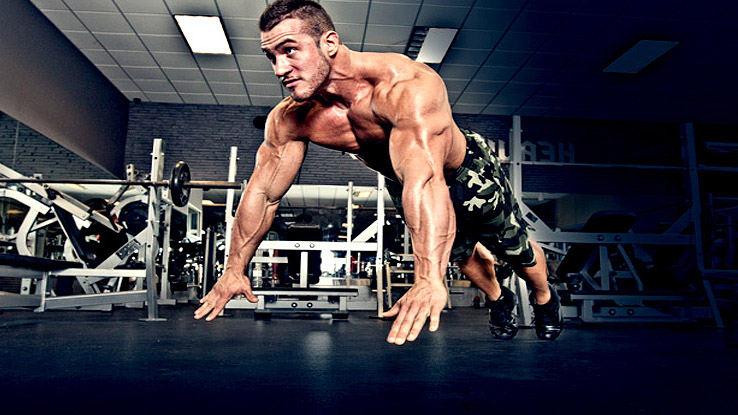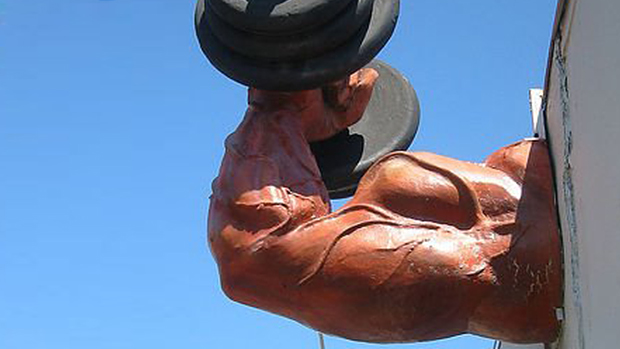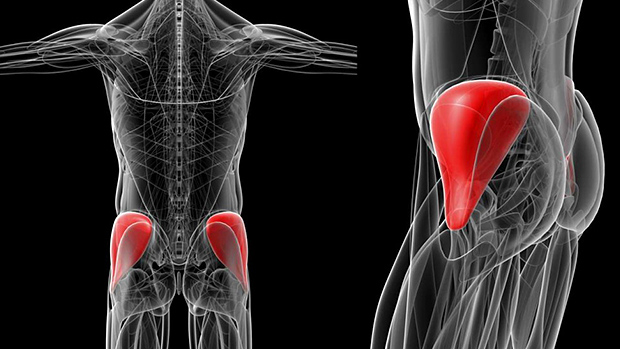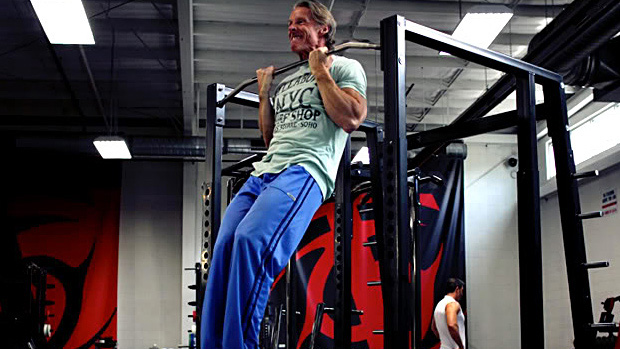Here's what you need to know...
- Long, complicated warm-ups can kill your motivation and are overkill for the majority of lifters.
- A good warm-up should prime your CNS for the upcoming workout, improve or maintain movement quality, and address your specific weaknesses, so forget the blanket warm-up recommendations.
- Two warm-ups, one for upper body and one for lower body, each tailored to your goals and specific limitations, is ideal.
You show up at the gym ready to bend bars and set PR's, so the thought of going through a 20-minute dynamic warm-up is a giant buzzkill. You know that you "should" warm-up, just like you should eat your veggies with every meal, but the typical dynamic warm-ups can get redundant, not to mention suck every last ounce of training drive from you.
How about a little flash and fire instead? Here's a unique approach designed to kick your training sessions off on a high note, all while staying healthy and making progress day in and day out.
No matter the training emphasis – powerlifting, bodybuilding, or athletic performance – the following hybrid system will have a direct, positive transfer to your working sets. This plan of attack will:
- Prime your central nervous system for the working sets ahead.
- Refine and maintain your athleticism and movement capacity.
- Improve performance on your strength lifts by activating more motor units and initiating faster movements.
- Address weaknesses and teach new skills at the beginning of your training when your nervous system is at its freshest.
- Increase your heart rate, body temperature, and caloric expenditure simultaneously.
This system represents the love child of explosive strength, reactive ability, dynamic mobility, and core activation – an orgy of dynamic movement patterns – followed by the implementation of plyometric exercises designed to put the final touches on preparing the body for the battle ahead.
The reactive warm-up system is broken down into 3-4 separate methods performed in a circuit fashion. This system offers a ton of room for variety and specification to your training program and goals. Here's the template we use.
Plyometrics may be the missing piece in your muscle growth puzzle. This training technique involves the stretch-shortening cycle and is vital in the development of reactive strength by stimulating the muscles to create more force in the transition from eccentric to concentric action.
The inclusion of lower body plyometrics has a huge carry over into building the start of a deadlift, the point where you must break the bar off the floor. However, it must be noted that these ballistic movements are taxing on the nervous system and should not be overused with a ton of volume. Aim for 3 to 4 sets of 3 to 5 repetitions per jump.

Lower Body
- Jumps: both legs – box jump, squat jump, depth jump
- Leaps: one leg to the other – lateral bound
- Hops: one leg to the same leg – hurdle hop
Upper Body
- Explosive Push-up
- Depth Drop Push-up
Implements
- Boxes
- Hurdles
- Resistance (weights/vests/bands)
Throw
There's just something about the medicine ball slam. Tell anyone to slam a ball through the floor and without fail, you'll see explosiveness. In return, some pent up anger is released and fast twitch muscle fibers are stimulated.
We can also apply the principles behind plyometrics to the upper body. Using our own body weight and medicine balls as tools, reactive strength can be developed in the same manner.
Pay attention to your power production and stop when there's a reduction in force. Remember, we aren't using these ballistic exercises as a conditioning tool. Keep the reps between 3 and 8.
Examples of Med Ball Throws:
- Slams
- Side Toss
- Overhead Throw
- Chest Pass
Carry
The perfect time for loaded carries is during the warm-up as they complement your first working sets while giving your body a chance to recover between the CNS-demanding plyometrics.
Carries are also great for the integration of the abdominals, breathing under stress, and the firing of supporting musculature like the lats – all things you're going to need to be able to do on your main lifts.
To keep your grip and core from fatiguing before your working sets, do the loaded carries for a short distance (15-30 yards) and only for 2-4 sets. This will ensure you reap the benefits without sacrificing your bench press, deadlift, or squat. Feel free to hit the carries again as finishers.
Here are some pairings that go well together:
- One-Arm and Double Rack Walks with Front Squats
- One-Arm and Double Farmers Walk (aka King of Carries) with Deadlifts
- Waiter's Walk with Military Press
Another variation that works is the Turkish get-up to waiter's walk. Perform the first half of a get-up at one end of the gym. At the completion of the lunge upward, walk with the kettlebell overhead for a set distance.
When you reach the other end of the gym, complete the get-up by returning to the ground. Then switch sides and return to your starting position.
Examples of Carry Variations:
- Farmer Walk
- One-Arm Farmer (or Suitcase) Walk
- Waiter's Walk
- Rack (single and double) Walk
- Turkish Get-Up to Overhead Walk
Move
Dynamic mobility is the fourth and final installment of the reactive warm-up. Mobility demands are highly individual, so any dynamic stretching or mobility work that's specific to your needs will suffice here. A favorite is the bear crawl, as it kills a whole slew of birds with one stone.
This movement combines hip mobility, scapula stability, and core activation into one dynamic pattern. We challenge you to try it on your elbows and feet and see if you aren't ready to go beast mode right after.
Examples of Dynamic Mobility:
- Spiderman Lunge
- Inchworms/Hand Walkout
- Bear Crawl: hands and feet
- Bear Crawl: elbows and feet
- Skipping Patterns
- Cable Chops and Lifts
Here are two sample reactive warm-ups for you to try right away.
Example for Pressing Session
| Exercise | |
| A1 | Plyo Push-Up |
| This upper body plyometric will teach the chest, shoulders, and triceps to produce power explosively. | |
| A2 | Get-Up to Overhead Walk |
| This movement will tie the loaded shoulder with the lats and core while improving total body mobility. | |
| A3 | Hop Matrix |
| This lower body plyometric will prep the hips so that you can create more tension from your feet and legs for stability and strength in your press. | |
| A4 | Bear Crawl |
| This mobility drill will teach your body to move around fixed joints to promote shoulder blade stability while you bench or press. |
Example for Hip Dominant (Deadlift) Session
| Exercise | |
| A1 | Box Jump |
| This lower body plyometric will develop power in the hips and prepare the glutes and hamstrings for the force production ahead. | |
| A2 | Inchworm |
| This dynamic mobility movement will improve your hip hinge by activating the core and lengthening the hamstrings. | |
| A3 | Medicine Ball Slam |
| This upper body plyometric will engage the lats and stimulate the central nervous system. | |
| A4 | Farmers Walk |
| This loaded carry will train your grip, get you stronger, and the act of picking the weights off the floor serves as a warm-up for the deadlift. |
In a perfect world there would be no need for nonsense like warm-ups. We'd just show up, do a few arm circles, and start hitting PR's while adoring fans take photos and toss us their perfume-scented undergarments.
But this isn't Fantasy Land and in the real world the quality of your training session (not to mention health) depends heavily on the level of preparation you bring to it.
Stop fussing around with silly arbitrary warm-ups and adopt a system that gives you what you need, when you need it.





